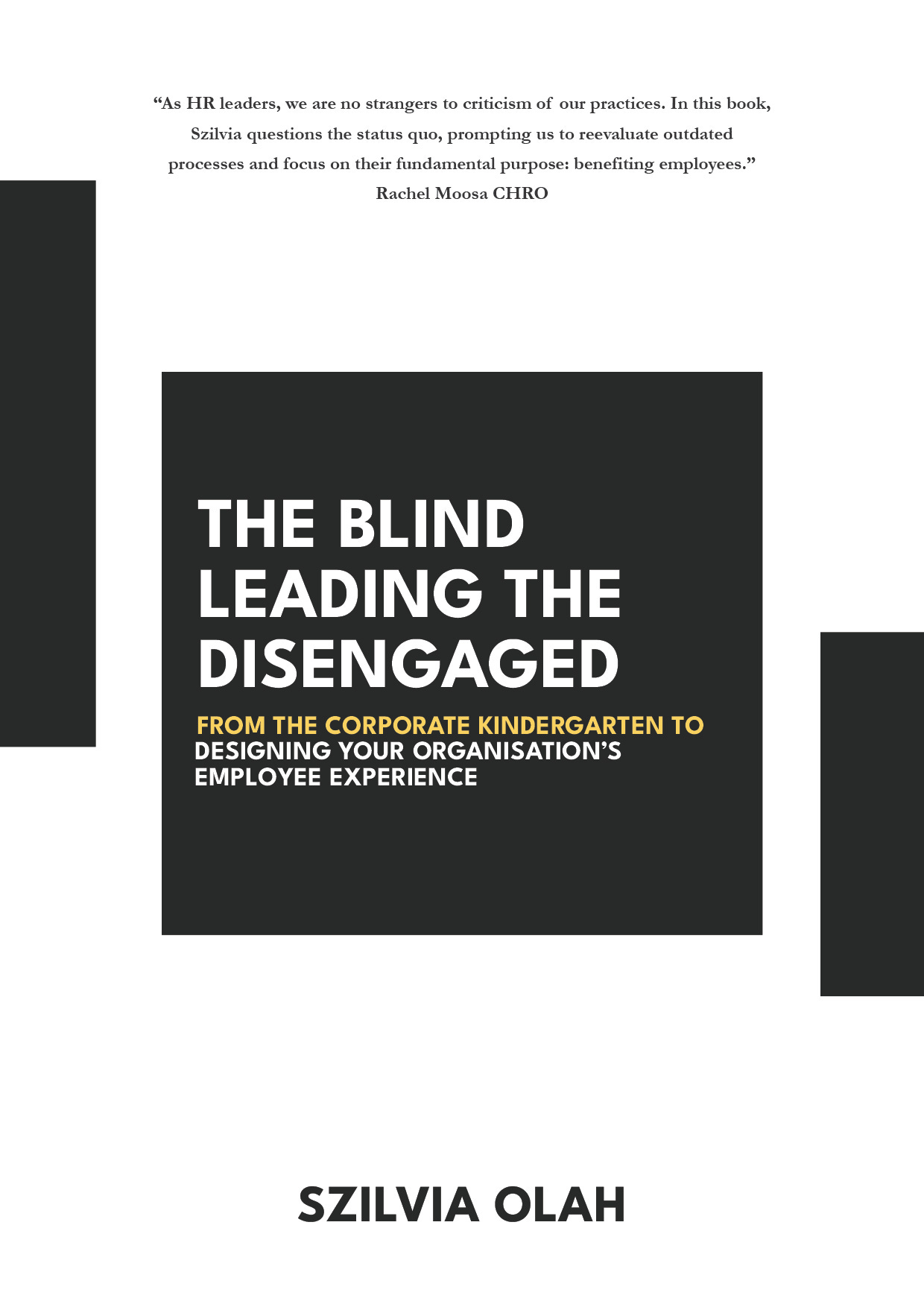HR Has Wasted Billions on the Symptoms
Organisations have to change the workplace and not the workers.
The latest research from from Oxford University stirred the world of Organisational Psychology and Wellbeing and they did not sugarcoat the nonsensical approach of the business world. If you don't like reading research papers ( I love them!!) here is the summary of it.
So, they've finally backed up what I've been saying for a whole year! I reached this conclusion because employees have been saying the same thing for ages. Lesson No. 1: listen to your employees – they're the ones creating content for Oxford University and other work studies. You don't have to wait for some summary to know what your employees are saying. If you do, it's either because you're not listening, don't care, or don't believe them. Which one is it?
The study conducted on 46.000 employees is the largest of its kind and concluded:
"Organisations have to change the workplace and not the workers."
HR, can we drop the whole "fixing people with organic apples, yoga, gym memberships, or meditation app subscriptions" thing? Your system seems a bit broken not the people, and these fixes aren't cutting it.
Side note: isn't it astonishing how much money these folks have squandered on nonsense? Like did they seriously think that yoga, gratitude jars, or staff activities are going to compensate for a dysfunctional work environment? Shouldn't this be considered a misuse of company resources, warranting some dismissals perhaps? Just curious... 😉 And here's HR, scratching their heads, wondering why they have zero credibility. I wouldn't be shocked if someone got the boot over this research. This should definitely find a spot in their annual appraisal: "Failed to track the success of planned interventions, resulting in billions of dollars wasted. Additionally, fell short of showcasing the necessary competence for the role and didn't meet the criteria for the 'Developing Self' competency."
Back to the findings (got a little excited there doing HR’ appraisal:-))
They concluded that these interventions (Individual-led interventions) had no impact on employees' wellbeing:
- Mindfulness session/program
- Resilience workshops/program
- Stress management programs i.e. yoga classes, applications
What helps though is organisational changes (interventions that start with the organisation):
- Clarity around one's role
- Healthy relationships and leadership
- Flexibility at work (hours, jobs)
- Job security
- Appropriate level of manning
- 4 day work week
When I shared this with my colleague, he said, "They're choosing the easy way out." At first, I agreed but later argued that they've actually chosen the tougher path. It's simpler to fix policies, procedures, practices, or systems than it is to fix people. In my view, failure here is great news, and organisations, as well as HR, should be happy as Larry. They can dismiss their construction crew that was put together to fix people and get down to the easier task of identifying areas that are causing challenges to their employees and addressing those.
I've never had a more solid confirmation of the value of my work in Employee Experience Design. This study clearly demonstrates that designing organisations with employees' experiences in mind is the way to go. It's no walk in the park given how severely broken many organisations are, but it's the right move, far better than squandering company resources with little to show for it. And the results are evident: high turnover, dissatisfaction, and employers complaining that nobody wants to work. Do you now believe me when I tell you to listen to your people????
I would correct the researchers with this: It is not that wellbeing initiatives don't work but rather that people don't understand what employee wellbeing looks like therefore, end up implementing interventions that have nothing to do with it. Employee wellbeing when done correctly, addresses the exact areas the research has highlighted.
Wellbeing and employee experience are the two sides of the same coin. Inseparable and Mutually Reinforcing. Employee wellbeing and employee experience (EX) are inseparable components of a unified strategy for creating a thriving workplace. Wellbeing focuses on the physical, emotional, mental, and financial health of employees, while EX shapes how employees perceive their daily interactions with the organization throughout their journey.
Organizations cannot treat these two concepts as separate initiatives—wellbeing programs without supportive day-to-day experiences come off as superficial, while poor wellbeing undermines even the best-designed employee journeys. Companies that align both build sustainable engagement, improve retention, and attract top talent by showing employees they are valued as people, not just workers.
If you’re looking to create employee experiences that truly stand out, we’ve got you covered. We design custom solutions tailored to your real challenges, aligned with the needs of both current and future generations. And yes—if you insist, we’ll throw in a badge too! 😄 Click on the banner and see how we can help you.
If you would like to have 365 of these articles categorised into nine areas so you can easily find what’s relevant to you:
Employee Experience / HR
Attract
Hire
Onboard
Motivate / Engage
Perform
Develop
Depart
Everyday Random Staff Related to People Management
Then click the below picture and order your HR playbook that questions everything we do in organisations and offers hundreds of alternative solutions.






